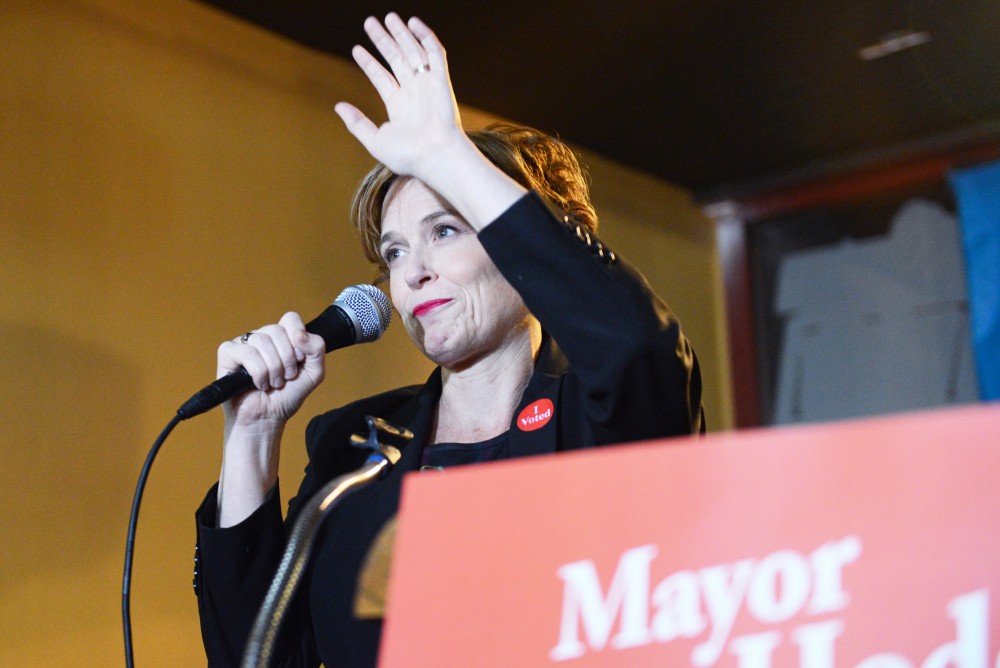Around 50 people made up the group waiting on election results at Gandhi Mahal Restaurant on East Lake Street Tuesday, where incumbent Mayor Betsy Hodges acknowledged her initial prospects weren’t promising.
Hodges finished third in first-choice votes when all precincts had reported with 18.08 percent, behind Tom Hoch and Jacob Frey. Frey secured the most first-choice votes of the race with just over 25 percent. Those at the loud, guitar-filled venue watched as a projector showed live polling results on a wall and focused on Hodges’ path to victory.
The only area where she won an edge in the ranked-choice ballot was from voters’ third-choices. She won 21.57 percent of third-choice votes, the most in the category. After the vote has been reshuffled through rounds of ranked-choice eliminations, the third-choice route leaves her a chance for re-election.
“The thing we know right now is that the numbers don’t look great for me,” Hodges said at the event. “The other thing we know is that we have ranked-choice voting.”

The crowd answered with cheers. After her address, Hodges left. The energy dwindled, and people moved for their coats.
Attendees at the event spoke of her accomplishments in office and maintained a quiet hope for the current race.
“I think Betsy has a great record over the last four years — a strong record to run on,” said Jeremy Reicheberger, 26, of Northeast Minneapolis. “I believe she will be able to pull on those second and third rank-choice votes.”
Hodges’ father, Morrison Hodges, said he still believes his daughter will win re-election. But things are different than before, he said, and it won’t be as easy this time.
Hodges served two terms on the city council before taking over as mayor in 2013.
Hodges held the office for a number of police reforms and workplace ordinances, like paid sick and safe leave in 2016 and a $15 minimum wage hike in June. A set of high-profile controversies also marked her tenure as mayor so far.
Her office faced turbulence after the Nov. 15, 2014 fatal police shooting of Jamar Clark, which brought national press coverage and Black Lives Matter protests that lasted about two weeks. The protest took the form of a round-the-clock encampment outside the Minneapolis Police Department’s Fourth Precinct.
More issues arose with the July police shooting of Minneapolis resident Justine Damond in South Minneapolis. The fallout of that incident culminated with the resignation of then-police Chief Janeé Harteau.








